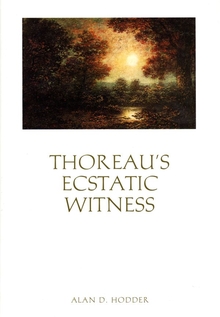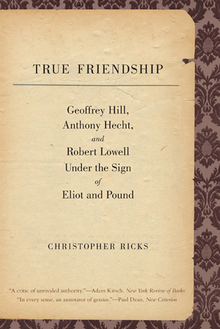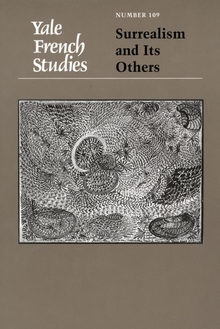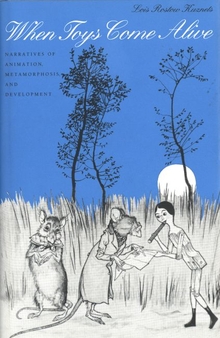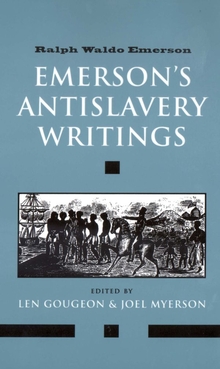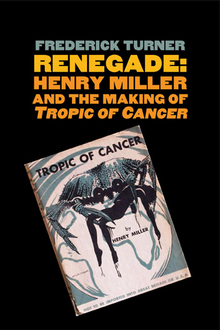Thoreau’s Ecstatic Witness
WARNING
You are viewing an older version of the Yalebooks website. Please visit out new website with more updated information and a better user experience: https://www.yalebooks.com
Alan D. Hodder
When Henry David Thoreau died in 1862, friends and admirers remembered him as an eccentric man whose outer life was continuously fed by deeper spiritual currents. But scholars have since focused almost exclusively on Thoreau’s literary, political, and scientific contributions. This book offers the first in-depth study of Thoreau’s religious thought and experience. In it Alan D. Hodder recovers the lost spiritual dimension of the writer’s life, revealing a deeply religious man who, despite his rejection of organized religion, possessed a rich inner life, characterized by a sort of personal, experiential, nature-centered, and eclectic spirituality that finds wider expression in America today.
At the heart of Thoreau’s life were episodes of exhilaration in nature that he commonly referred to as his ecstasies. Hodder explores these representations of ecstasy throughout Thoreau’s writings—from the riverside reflections of his first book through Walden and the later journals, when he conceived his journal writing as a spiritual discipline in itself and a kind of forum in which to cultivate experiences of contemplative non-attachment. In doing so, Hodder restores to our understanding the deeper spiritual dimension of Thoreau’s life to which his writings everywhere bear witness.
At the heart of Thoreau’s life were episodes of exhilaration in nature that he commonly referred to as his ecstasies. Hodder explores these representations of ecstasy throughout Thoreau’s writings—from the riverside reflections of his first book through Walden and the later journals, when he conceived his journal writing as a spiritual discipline in itself and a kind of forum in which to cultivate experiences of contemplative non-attachment. In doing so, Hodder restores to our understanding the deeper spiritual dimension of Thoreau’s life to which his writings everywhere bear witness.
Alan D. Hodder is associate professor of comparative religion at Hampshire College and author of Emerson’s Rhetoric of Revelation.
“Hodder’s brilliant and persuasive study of the religious side of Henry Thoreau will change the way people think about Thoreau. This is a first-rate book, sure to have a lot of impact and to be cited for years to come.”—Robert D. Richardson, Jr., author of Henry Thoreau: A Life of the Mind and Emerson: The Mind on Fire
“In this richly detailed study, Hodder pays scrupulous attention to what he considers the religious expression in Thoreau’s work. . . . He makes a convincing case that Thoreau’s various designations—as nature writer, man of letters, and social critic—come into better focus once his religious sensibility is factored into his character and work.”—Library Journal
"Lucid. . . . The ingenious, absorbing interpretation of Thoreau’s late journal that concludes Hodder’s study is a rich and powerful contribution to lines of insightful modern scholarship. . . . No wonder the Thoreau Society selected this outstanding thinker . . . as one of the main speakers at its 2002 Gathering."—Randall Conrad, The Thoreau Project
“Hodder’s reading—at once close, learned, and empathic—offers a fresh, convincing approach to Thoreau as a deliberate writer whose life was a religious quest.”—Wesley T. Mott, Religion and the Arts
"Hodder’s scrupulously detailed biography provides a fresh and invaluable perspective on the significance of Thoreau’s religious sensibility."—Booklist
“The book should prove useful for those interested in a detailed study of Thoreau’s spiritual journey, the relationship between literature and religion, and in how Thoreau stands as a precursor to the religious pluralism of the twentieth century.”—James H. Brownlee, Religious Studies Review
“Hodder has written the best available study of Thoreau’s spirituality.”—Dean Grodzins, The Journal of Religion
“[A] critical tour de force.”—Richard Higgins, UU World
“Alan Hodder fills this lacuna [on Thoreau and the question of religion], thoughtfully considering Thoreau as a spiritual and religious writer.”—Lauren F. Winner, Books & Culture
ISBN: 9780300089592
Publication Date: October 11, 2001
Publication Date: October 11, 2001
368 pages, 5 1/2 x 8 1/4

